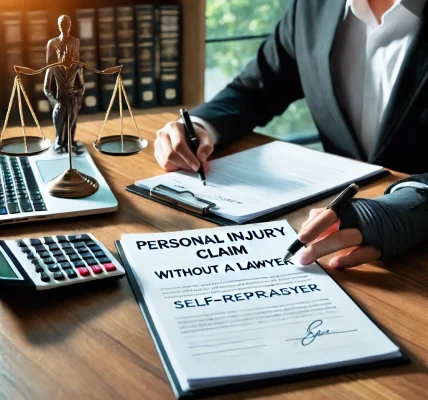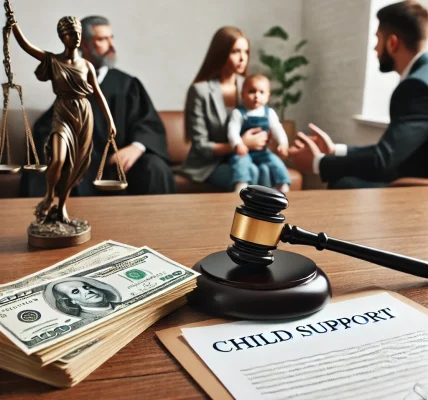Introduction
In today’s digital age, social media platforms like Facebook, Instagram, Twitter, and TikTok have become an integral part of our lives. While these platforms allow us to stay connected, share our experiences, and express ourselves, they can also have unintended consequences, especially when involved in a personal injury case.
Many individuals fail to realize that their social media activity can be used as evidence against them in legal proceedings. Insurance companies, defense attorneys, and opposing parties may scrutinize your posts, photos, and interactions to undermine your claim. This article explores how social media can impact your personal injury case, what to avoid, and best practices to protect your claim.
The Role of Social Media in Personal Injury Cases
1. Social Media as Evidence in Court
Social media posts, photos, and even comments can serve as evidence in personal injury claims. Insurance adjusters and defense lawyers often monitor claimants’ online activity to find inconsistencies or contradictory information that can be used to reduce or deny compensation.
For example:
- If you claim serious injuries but post a photo engaging in physical activities (e.g., running, hiking, or lifting heavy objects), the defense may argue that you are exaggerating your injuries.
- A status update about attending a party or vacation may suggest that your injuries are not as severe as claimed.
- Comments from friends and family congratulating you on recovery may be misinterpreted as proof that you no longer need medical treatment.
2. How Insurance Companies Use Social Media Against You
Insurance companies and defense attorneys actively search social media for evidence that can:
- Challenge the severity of your injuries.
- Suggest that your injuries were pre-existing or unrelated to the accident.
- Contradict statements made in your official claim.
- Imply that you are participating in activities inconsistent with your injuries.
Even a seemingly harmless post can be taken out of context and used against you. Therefore, it is crucial to be mindful of what you share online during your case.
Common Social Media Mistakes That Can Harm Your Case
1. Posting About Your Accident or Injuries
Many individuals feel compelled to share their experiences after an accident. However, posting details about your case can backfire. Statements like “I feel fine” or “It was just a minor accident” may be used to downplay the severity of your injuries.
2. Sharing Photos and Videos That Contradict Your Claim
Even if you are in pain, a picture of you smiling at a family gathering or enjoying a day out can be misinterpreted. Insurance companies may argue that your injuries are not affecting your life as much as you claim.
3. Checking In to Locations
Social media platforms often allow users to “check-in” to places they visit. If you claim that you are bedridden or severely injured but check in at a gym, amusement park, or vacation spot, it could harm your case.
4. Engaging in Conversations About Your Case
Discussing your case online, even in private messages, can be risky. Anything you say may be discoverable by the opposing party. If you express doubts about your claim or speculate about liability, it could weaken your case.
5. Not Adjusting Privacy Settings
Many people assume that their social media profiles are private, but insurance companies and attorneys have ways of accessing your content. Even private posts can be obtained through legal discovery or seen by mutual connections.
How to Protect Your Personal Injury Case from Social Media Risks
1. Avoid Posting About Your Case
The safest approach is to avoid discussing your case on social media altogether. Refrain from posting about the accident, your injuries, settlement discussions, or anything related to your claim.
2. Set Your Profiles to Private
Adjust your privacy settings to limit who can view your posts. However, keep in mind that even private content can be accessed through legal means.
3. Think Before You Post
Before posting anything, consider how it might be interpreted by an insurance company or defense attorney. If there is any chance that a post could be misinterpreted, it’s best not to share it.
4. Be Cautious with Tags and Comments
Your friends and family may tag you in posts, photos, or locations that could contradict your claim. Politely ask them not to tag you or mention your situation online.
5. Avoid Accepting New Friend Requests
Insurance companies sometimes create fake profiles to gain access to claimants’ social media content. Be cautious when accepting friend requests from unknown individuals.
6. Limit Social Media Usage Until Your Case is Resolved
If possible, consider taking a break from social media until your case is settled. This minimizes the risk of accidentally posting something that could be used against you.
What to Do If Social Media Is Used Against You
If the opposing party presents social media evidence against you:
- Do not delete posts – Deleting content may be considered destruction of evidence.
- Consult with your attorney – Your lawyer can argue context, privacy violations, or relevance.
- Provide clarifications – If a post is taken out of context, your attorney may present additional evidence to counter misinterpretations.
Conclusion
Social media can have a significant impact on your personal injury case. Even innocent posts can be misinterpreted and used against you by insurance companies and defense attorneys. To protect your claim, avoid discussing your case online, adjust your privacy settings, and be mindful of what you post.
By taking these precautions, you can help ensure that social media does not jeopardize your ability to receive fair compensation for your injuries.
Disclaimer: This article is for informational purposes only and does not constitute legal advice. Always consult with a qualified attorney regarding your specific case.




